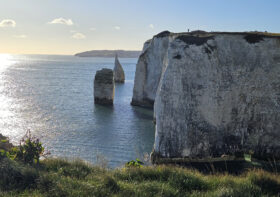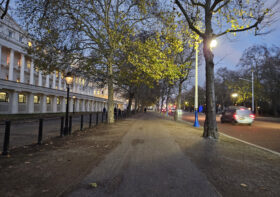The Reading List, week 6: Duhig, Kenny, Murray, Lehane

This post is the latest update to my ‘Reading List’ project begun in July 2015.
The Lammas Hireling, Ian Duhig (Picador, 2003)
From the opening poem ‘Blood’, an extended description of a self-styled skinhead-type hardman who turns out to be a fifteen-year-old who faints at the sight of a vaccination needle ‘in front of a whole queue of third years’, you get the feeling this collection is going to be a treat. Ian Duhig has such a range I just can’t find the right box to put him in.
A rage against a corporation that diverts ‘twenty million tons of river’ is presented as a protest song (‘Water, Light’) – ‘Some people couldn’t run a bath / And these were running mining’. The poet seems to have a scholarly familiarity with the classics, with ancient myth & folk tales, with modern history … yet he’s also a politically-engaged ‘man of the people’ who seems able to combine extraordinary wit and subtlety of language with (how shall I put it?) a certain earthy bluntness. There are punchlines aplenty (eg ‘The Vision of the Virgin’, ‘Chinese Sonnets’) and a hilarious ekphrastic poem – ‘The dancing couple. He’s as smug as buttered parsnips / Despite entertaining scarlatina and an eerie crotch.’ (‘Rustics Dancing Outside an Inn’). A found poem ‘Coble Rig Veda’ celebrates a rich nautical vocabulary probably indecipherable to your average present-day reader. The wonderful title poem won the National Poetry Competition in 2001. It has a weirdly compelling quality – a poem I want to keep going back to, and every time there’s more to be squeezed from it. Here’s a link to Ian reading the poem, and some background to it.
Favourite poem: ‘Ken’s Videos, Seahouses’. (I admit I wrote a little homage poem ‘after’ this, which appeared in The Interpreter’s House. Nowhere near as clever as the original, sadly. I can try though.)
The Boy Who Fell Upwards, Peter Kenny (anthologyofguernsey.com, 2010)
This collection of poems is part of a ‘A Guernsey Double’, together with ‘The Man Who Landed’ by Richard Fleming. It was published with funding from Guernsey Arts Commission, as an ‘explore Guernsey’ project – there’s even a map in the centre pages pointing out the various places referred to in the poems.
I confess I’ve only read Peter’s half of the book this week, saving Richard’s for another time. (You have to turn the book over and start from the other side to do that, so it does feel like a separate piece.)
My ‘Reading List’ strategy is to read straight through the poems in a collection, not to re-read or overthink individual poems. This isn’t always easy, especially if there are distractions and you get to the end of a piece and have the sensation you weren’t attending properly. But it leaves an impression, a kind of prevailing feeling. After reading ‘The Boy Who Fell Upwards’ the feeling I had was melancholy. That’s not to say sadness exactly, but there are mysteries here – unresolved (hi)stories, both personal and of the place, and it’s sometimes the sense of not knowing that fuels the tension. From the start we learn ‘I’m torn up by currents …/ hollow-boned orphan, I shriek like a gull in the gale.’ (‘The Boy Who Fell Upwards’).
The narrator (as small child, as teenager, as adult) is surrounded by characters unnamed but defined by their family roles – Gran’mere (the first we meet, and the most present through the poems), Father, Grandfather, a dead brother, a ‘thought daughter’. They are all woven into a landscape both hostile and beautiful – ‘Cliff and foam murmur the murmur / of a dreaming widow, reaching / across a cold sheet / to a memory.’ (‘Dusk at Icart Point’) and later,’Raucous in the little lanes / a drunken sea-wind / blew me here / to listen and belong again…’ (‘A return’). But this is no memoir. And it’s certainly not a tourist information brochure. Sure, we get ‘I glimpsed a summer Guernsey / cuddled by the setting sun’ (‘A Glasshouse’) but a Nazi bunker has the narrator imagining a wartime victim ‘…your belly flop / into the concrete slop / of these foundations.’
There’s a deep sense of love for the place, and the sadness of things fragmenting, uprooting, breaking and toppling – ‘all these muddled memories / word by word from broken things.’ (‘The Little Chapel’) which I found complex and moving. Favourite poem: ‘Thought Daughter.’
Of earth, water, air and fire – animal poems – Nicholas Murray Melos 2013).
This is a fairly jaunty celebration of animals and birds, alive and (about to be) dead, real and mythical. Sometimes the beast itself takes centre stage, but just as often the poet focuses on a particular feature or association, as with ‘Aardvark’ – ‘… unaware of its symbolic life / as tradesman’s Number One’.
Lambs are ‘teenaged gangs’, a Pheasant is a ‘gaudy racer’. Most of the creatures are addressed directly as ‘you’, permitting the poet to express his own feelings or observations. I enjoyed the originality of ‘Pelican’ – ‘the guy who swaggers, / who Mick Jaggers.’ Less convincing was the ‘Swan’ – ‘Conscious of magnificence, that stately glide / asserts possession of the tree-screened pool.’
Unfortunately I’m unable to read any poem about a Kingfisher without recalling the wonderful Chris McCabe poem of that title which appeared in The Rialto and in the ‘Best of British Poetry 2011’ anthology. (Hear Chris read the poem here.) And ‘Crow’ will always be a tricky one.
The collection was good fun and the quirky juxtapositions of creatures and unexpected touches made me smile. Favourite poem: ‘Pelican.’
Hunters – Dorothy Lehane (Annexe Press 2013)
This is such a slim volume I thought I’d slip it in this week … just seven poems, and on a first read through I did pick up on some references to stars/constellations/space but wasn’t entirely sure if I’d missed something crucial.
‘Keyhole (NGC1999)’ ‘isn’t exactly grown yet / barely sagacious’ made more sense when I had looked it up (apparently it’s a ‘mysterious hole in space’). I don’t really like doing ‘research’ in order to get something from a poem, but in the case of this pamphlet it did help.
In ‘Crab Nebula’ there are references to the Bible, a line from Macbeth and possibly a reference to some incident in Chinese history and/or fable. There are puzzling and/or opaque moments throughout, but nevertheless the poems zing with original ideas and exhilarating language. ‘Deep freeze mother, / primordial grime, / don’t speak now hypoglycaemics.’ (Goldilocks Zone’) ‘sweep this realm, / hypnotised by jewels, regal cat’s eye / puffing out smoke rings like knotted gas,’ (‘Hunters’).
Favourite poem: ‘AE Aurigae’.



Thanks for your kind words Robin. Guernsey is the place I love most in the world. Just listened to Ian’s ‘The Lammas Hireling’. Absolutely magical.
I am enjoying this series of yours very much. Just listened to the two audio links. Thanks for those too! That kingfisher poem is super “You saw the tailless hologram shoot its bib of awe.”
Thanks Elly! yes, love that Kingfisher…